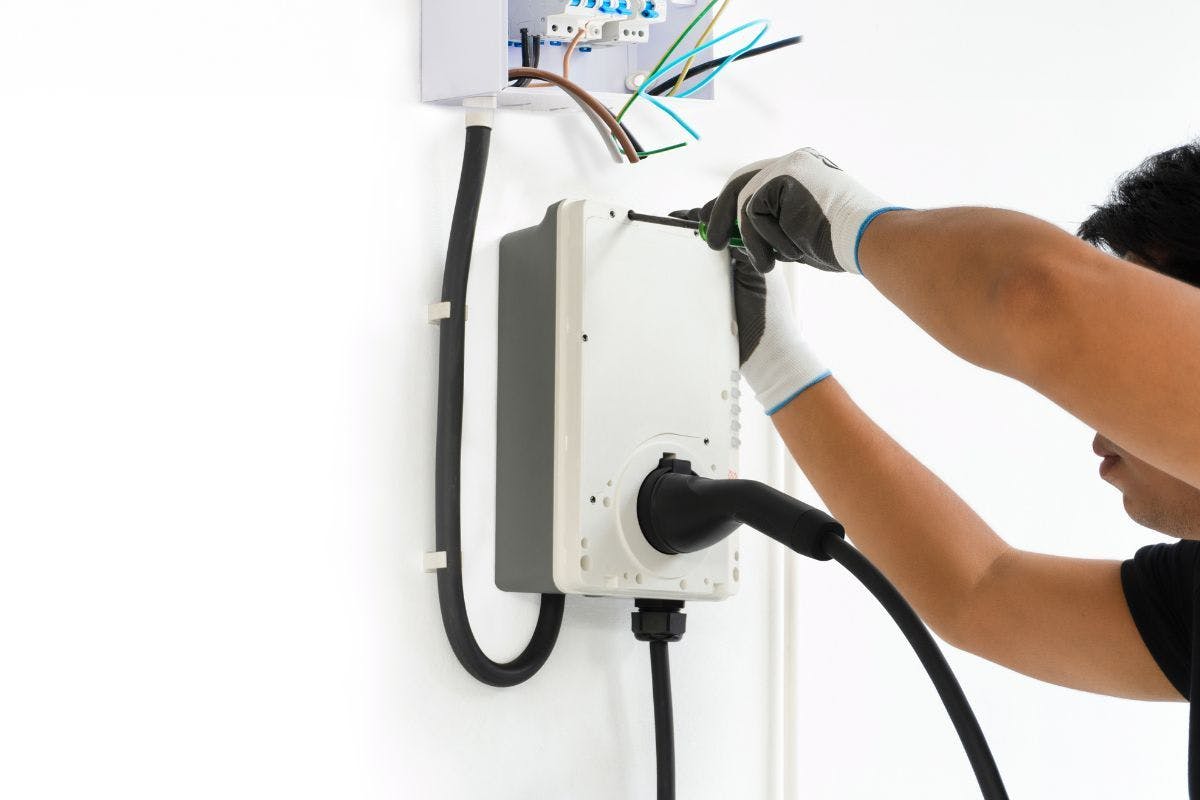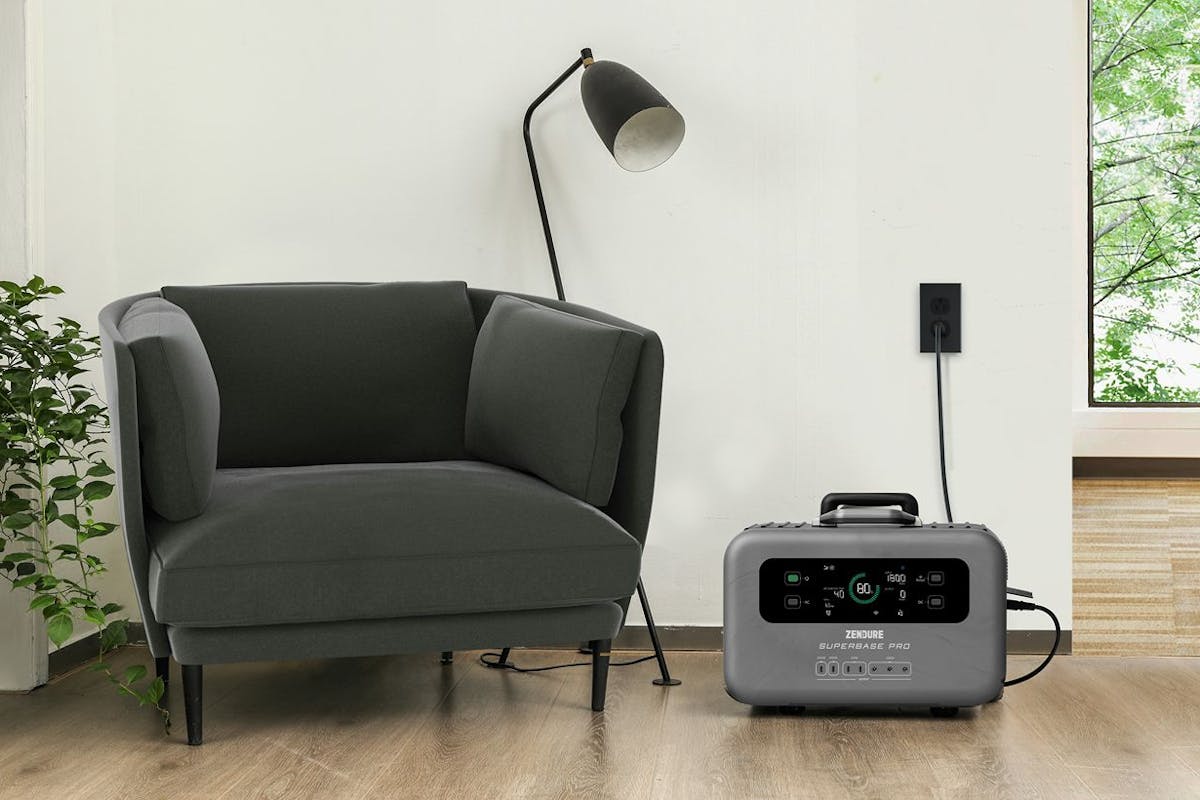Installing a Home EV Charger: Benefits and Costs
Actualizado

Autor
Andrew Giermak
Solar and Electrification Writer and Editor

Editor
Andrew Blok
Electrification and Solar Writer and Editor

If you’re considering an electric vehicle, but concerned about charging it, you need to know about your home charging options. A home EV charger is the best choice for convenience and affordability for most American drivers.
When does going to a level 2 home EV charging station make sense? When is the expense of installing a charger worth it? Here’s a guide to the factors, costs, and benefits to consider with a home EV charger.
See how much you can save with home energy changes
Do You Need a Home EV Charger?
The majority of electric vehicle drivers will want a home EV charger, the most convenient and cost-effective charging option today. Without a home EV charger, you’d need to use public charging stations regularly, which is more expensive and time-consuming.
Using a level 2 home charger with home solar panels, solar battery power, or lower-rate off-peak utility power, is generally the least expensive and simplest way to charge an EV. A level 2 charger can fill most EV batteries in 4-10 hours, allowing for a full charge overnight
A level 1 charger is not the fastest way to charge an EV, but can be entirely satisfactory for many homeowners. Level 1 chargers take from eight hours to two days to charge from empty or very low to 80-100%. Going without any kind of home charger is also possible if don’t mind using public charging, or frequent places with complimentary charging.
How to Install a Home EV Charging Station
A level 1 EV charging is effectively just a cord using a regular 120V home outlet and it doesn’t need installation or extra work.
Installing a home level 2 EV charging station, as you’re dealing with electrical work, almost always requires professional help.
A level 2 charging station uses 240V power. This often requires an electrician to install a dedicated 240V circuit in your electrical panel and a 240V outlet where you want the charger. You may also need an upgraded electrical panel and wiring. More reasons to hire a licensed electrician include safety, code or permitting compliance, and keeping warranties or insurance on the vehicle valid.
See how much you can save with home energy changes
Cost to Install a Home EV Charger
A level 1 charger often comes with the electric vehicle. If you’re going to a level 2 home charger, the probable expenses include the charging station plus professional installation, permitting fees, inspection cost, and a new electrical panel, outlet, and wiring if needed.
Level 2 home chargers cost $300 to over $1,000. This depends on factors like charging speed (amperage), brand, smart features, weather rating, and hardwiring vs. plug-in chargers. Professional installation cost varies from about $400 to much higher depending on material, labor, and if extra electrical work or new devices are needed. For instance, a new electrical panel can be $800, up to about $7,000 for a smart panel or for larger properties. Inspection and permitting costs are about $50-$300 depending on location and your project.
Benefits of Home EV Charging
Charging your EV at home is typically the best way to see the greatest benefits of an EV.
- Cost effective: Charging at home is usually less expensive than using public chargers. Using free solar power or utility electricity during off-peak hours (overnight and weekend) are the best ways to save.
- Convenience: The easiest way to charge an EV, is plug it in when you get home and charge it overnight. For some drivers, a level 1 charger will work with their routine. For others, a level 2 charger might be best because of your mileage or schedule.
- Flexibility: Smart EV chargers let you monitor and schedule when charging starts or stops to use solar power, battery power, or off-peak electrical periods most efficiently. Some smart charger users use bi-directional charging to have a compatible vehicle’s battery be emergency power for your home in an outage or to send power to the grid to earn bill credits depending on plans such as net metering or peak rates in your area.
To estimate your savings and see the potential benefits of home solar power or overall energy savings, you can use our solar savings calculator or our home energy advisor.
See what home electrification can do for you:
Frequently Asked Questions
Can you install an EV charger outdoors?
You can install an EV charger outdoors depending on your climate, the charger’s weatherproofing and enclosure ratings, if the charger needs hardwiring or is a plug-in, and if you have a safe location out of extreme temperatures, snow and ice, and standing water.
Are there certain times of day you should charge your electric vehicle?
If you have free, renewable solar power available, you can charge your EV for free anytime the sun is out. If you store solar power with battery storage, you can discharge power from the battery into the EV’s battery anytime. If you’re using grid electricity, the best time to charge is during off-peak hours, which are generally overnight and weekends.
Do you need a permit to install an EV charger?
In most cases you will need a permit to install a level 2 home EV charger. This is needed for safety and insurance, and to verify you had a legal electrician do the work and inspection on it.


